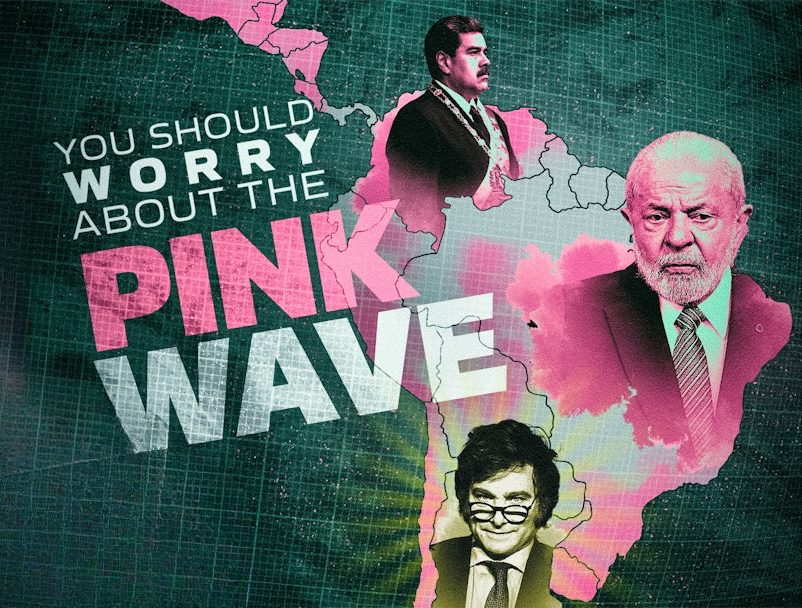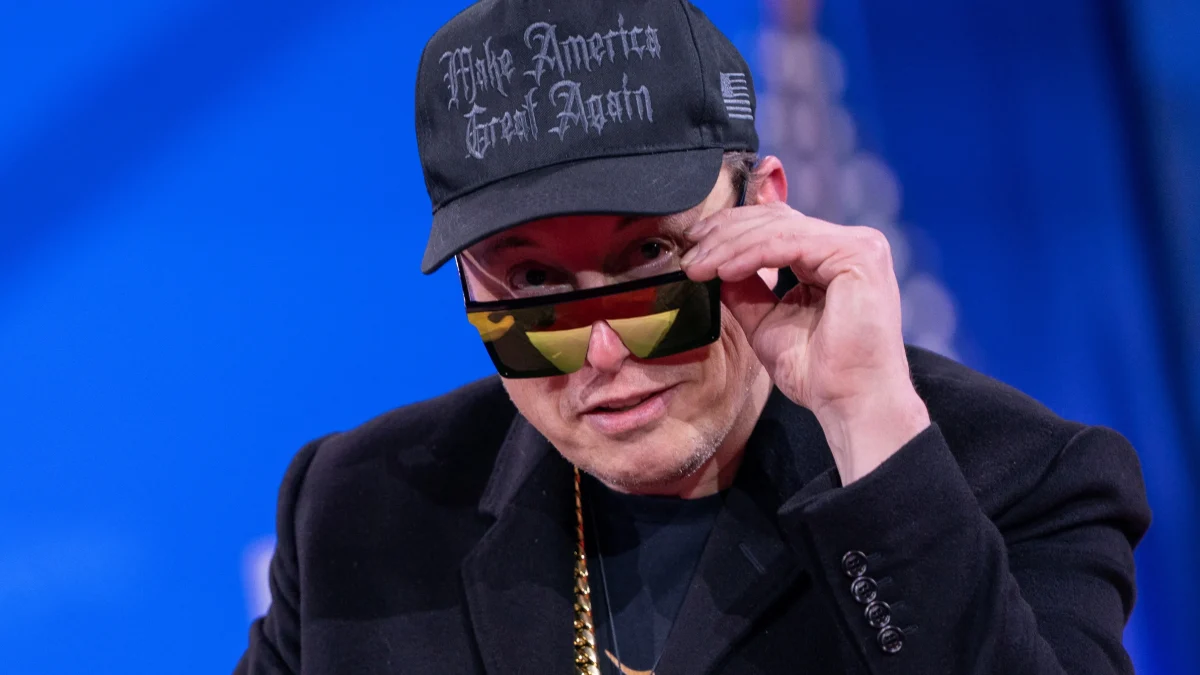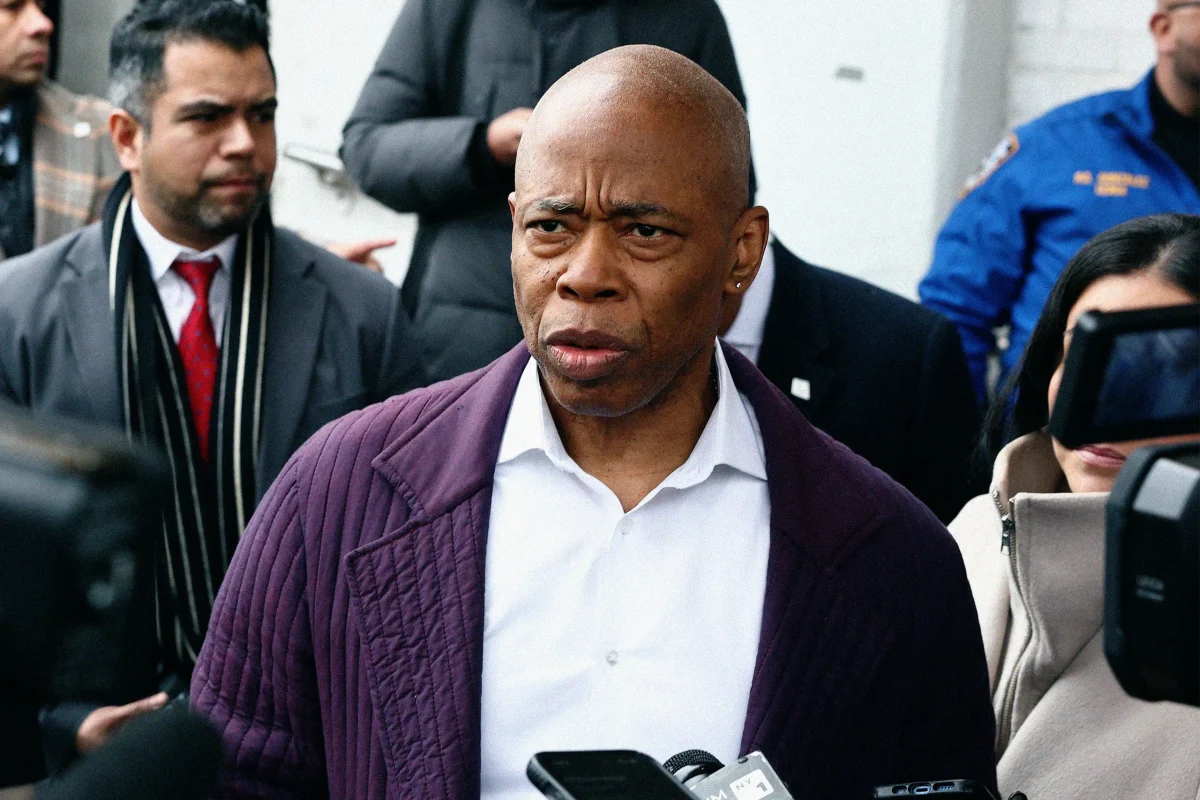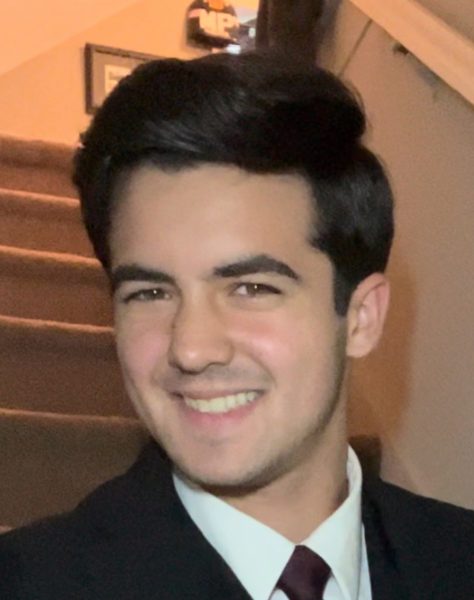The sphere of politics has become incredibly heated and tumultuous in the recent decade. Wars, riots, assassinations, misinformation, and propaganda are all becoming increasingly common occurrences in the day-to-day lives of folks who simply are struggling to cover the cost of groceries this week. One of the major issues of the United States in the 2024 Presidential Election Season is the border crisis… but where does this issue stem from? I present to you the little-talked-about political tide that has dominated Latin American Politics: The Pink Wave.
The massive goliaths of problems that are occurring in Latin America have prompted the biggest crisis at the border in American history since the Border War of 1919. But what is happening in Latin America to make so many people want to leave for a land of opportunity?
The Pink Wave can be defined as a massive political trend amongst Central and South American governments to transition to more far-left governments which occurred in the early 21st century. In recent years, massive political turmoil has occurred all over Latin America, as many live in poverty and must survive constant gang violence and the looming threat of censorship on top of that. These governments not only lean to the far left, but they will often resort to anti-American ideals and/or tyranny.
The São Paulo Forum, or Foro De São Paulo (FSP) has played a key role in the ignition of the Pink Wave. Created July 1, 1990, it was created in response to the Fall of the Berlin Wall, an attempt to rebrand Socialism and Communism for the new age. According to “Foro de San Pablo ¿qué es y cuál es su historian?” by Carlos Baraibar & José Bayardi, two former federal workers of Uruguay, the FSP was constituted when the Brazilian Workers’ Party approached other parties of Latin America and the Caribbean to debate the new international scenario and preserve leftist governments in the modern era.
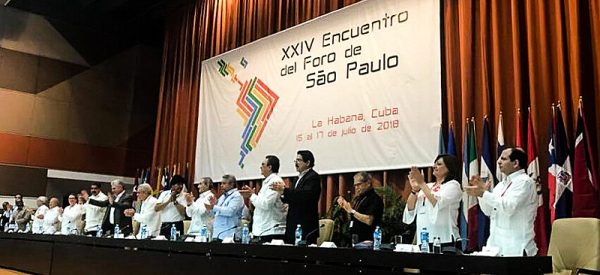
The FSP is still wildly successful to this day. Members of the FSP include the current leaders of Bolivia, Brazil, Chile, Colombia, Cuba, the Dominican Republic, Honduras, Mexico, Nicaragua, Panama, St. Lucia, and Venezuela. The Foro De São Paulo Declaration even states that members must commit to “…willingness to renew leftist and socialist thought…” and “…to reaffirm its emancipating character…” A common theme about countries with leaders in the FSP is rampant corruption, slow economic growth, and representing the Pink Wave.
A prime example of the causes of the border crisis and a demonstration of the Pink Wave in action is the country of Venezuela. From the 1950s to the early 1990s, Venezuela was one of the wealthiest countries in the world. With an abundant oil supply and booming economy, throughout the 1900s the country was “among South America’s wealthiest countries,” (GB News). However, when Hugo Chávez was elected as the 52nd president of Venezuela in 1998, he quickly turned the country from a prosperous shining beacon of South America to the starving crisis zone of today, where people in Caracas (the capital city of Venezuela) are resorting to eating stray dogs caught in the street. Chávez’s rampant corruption with his anti-democratic socialist governance and his mismanagement of the Venezuelan economy, particularly with Chávez’s “[utter failure] to wean Venezuela from oil dependency” (nacla.org) created what we now think of today when we hear “Venezuela.”
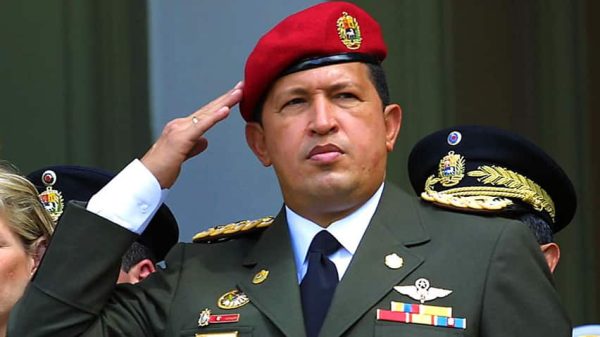
The election of the self-proclaimed Marxist Hugo Chávez was shortly followed by the election of other similar candidates in the early 2000s, including Lula De Silva in Brazil in 2003, Evo Morales in Bolivia in 2006, and Cristina Fernández de Kirchner in Argentina in 2007. The First Pink Wave of the late 90s and early 2000s would quickly come to an end in much of South America following the Great Recession of 2008, where many leaders such as Cristina Fernández de Kirchner and Lula De Silva would be voted out or impeached by their respective countries.
The Second Pink Wave would come in 2018 with the election of Mexico’s, Andrés Manuel López Obrador. It would be followed by the elections of “Peronist, Alberto Fernandez in Argentina (2019), Luis Arce with his Socialist Movement in Bolivia (2020), Peru and it’s Socialist Pedro Castillo (2021), leftist Xiomara Castro in Honduras (2022), Gabriel Borie in Chile (2022), and in Colombia, a former Marxist, Guerilla Member, and Hugo Chávez acolyte became the first leftist President of the country ever Gustavo Petro (2022)” (The DailyWire).
Since the widespread electing of these leftist leaders, significant problems have arisen all over Latin America. In Mexico, for instance, after the election of Andrés Manuel López Obrador, millions of Mexicans fled the country because the government attacked free speech and serious crime problems as a result of Mexico’s incompetent governance. According to the Washington Post in 2o22 Obrador “intensified his attacks against independent [journalistic] institutions” and openly criticized journalists by exposing their income data (Reuters), and has used his judicial branch to prosecute his enemies.
The New York City Bar has been incredibly critical of the lack of judicial independence under the Mexican government and Obrador, “On August 1, 2022, the City Bar condemned President López Obrador’s remarks about opening investigations of judges who have issued decisions contrary to the government’s interest, as such investigations (and/or threats of investigation) interfere with judicial independence. The City Bar urged the Mexican government to respect judicial independence in accordance with international law and Mexico’s international commitments.[5] In that statement, the City Bar noted that President López Obrador violated the United Nations Basic Principles on the Independence of the Judiciary and the American Convention on Human Rights because ‘such conduct directly undermines the respect and independence of the judiciary and intimidates the judges involved and deters them from independently carrying out their judicial duties.'” Furthermore, the Democracy Index of 2022 updated Mexico’s status from a ‘Flawed Democracy’ to a ‘Hybrid Regime’, referring to how Mexico is losing standard democratic principles and is becoming more corrupt.
Huge swaths of Mexican land that are under the de facto rule of the Mexican Cartel are also said to be facilitating a massive drug trade and human trafficking. The Global Guardian states that “the reality [of this situation] is that cartels in Mexico are responsible for tens of thousands of deaths, abductions, and other heinous crimes, making the country one of the world’s most dangerous.” The incompetence of the anti-Democratic pink-wave regime of Andrés Manuel López Obrador has exacerbated Mexico’s already severe problems.
This phenomenon is not limited to Mexico though, as the Pink Wave and the rise of Leftist governments have devastated many other countries. Under the administration of Alberto Fernandez, inflation rose to 140% as Argentinians struggled to feed themselves (AP News), and according to Mary O’Grady of the Wall Street Journal, “Since Argentine inflation began to take off again in 2007 until the end of 2022, total money supply grew on average 30.7% a year, according to the Ministry of the economy.” This led to the election of Javier Milei, who stated in an interview, “We have decided to embrace the values of the West, and embracing the values of the West means embracing the Founding Fathers of the United States.” We are merely a few months into the presidency of Milei. So many worldwide are intent on seeing what will happen under the Milei administration, especially when he struggles against the opposition Congress despite having a great approval rating.
Countries such as Bolivia, Colombia, Honduras, Chile, and Nicaragua are all dealing with a rise in crimes, poor economies, political oppression, alteration of constitutions, and more. Many of these countries are among the poorest and find themselves more aligned with countries like Iran, China, and Russia.
Venezuela and Brazil are two very notable players in this Pink Wave, however. Venezuela for its extremist government persists despite appalling living conditions and Brazil for its continual progression to a more authoritarian Leftist government.
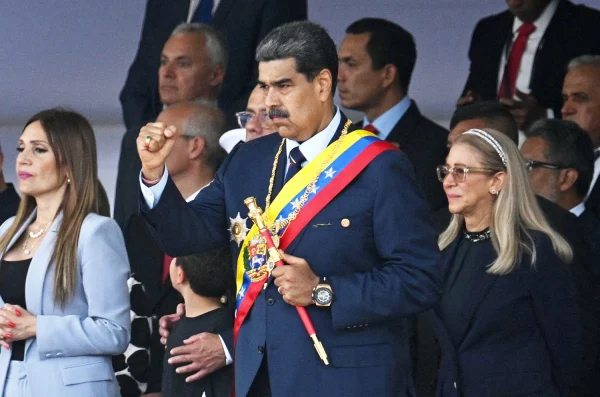
After four terms in office, Hugo Chavez died while serving, leading Nicolas Maduro, his chosen successor, to be elected by a narrow margin, leading to the opposition contesting the result. Between 2014 and 2021, Venezuela’s GDP dropped by a whopping 80%, oil output dropped drastically, and the economy has been characterized by corruption, unemployment, mismanagement, and shortages (New York Times). Its debt burden is at least 150 billion dollars, and hyperinflation is a massive burden to the citizens of Venezuela. In 2018, hyperinflation rose to an unprecedented 130,000% and remains at 337.5%% in 2023 (Yahoo Finance). With all those reasons in mind, it is very clear why the UNHCR estimates that 7.7 million Venezuelans have fled the country since 2014, with many believing that number is much larger. Venezuelans are at a breaking point as they struggle to put food on their plate, in their own capital city, Caracas, it has been noted that people have resorted to eating dogs.
Recently Venezuela had another election in 2024, evidence has once again unveiled the likelihood that the Presidential Election was rigged to keep Maduro in power. The Guardian states that, “About four hours after voting ended, the government-controlled national electoral council declared victory for Maduro, eventually stating that the strongman leader had won nearly 52% of the vote to Gonzalez’s [his opponent] 43%. But thousands of opposition volunteers had managed to collect about 80% of the voting tallies from polling stations, which showed a clear victory for Gonzalez, with 67% over Maduro’s 30%. Two independent analyses, from AP and the Washington Post, reached the same conclusion.”
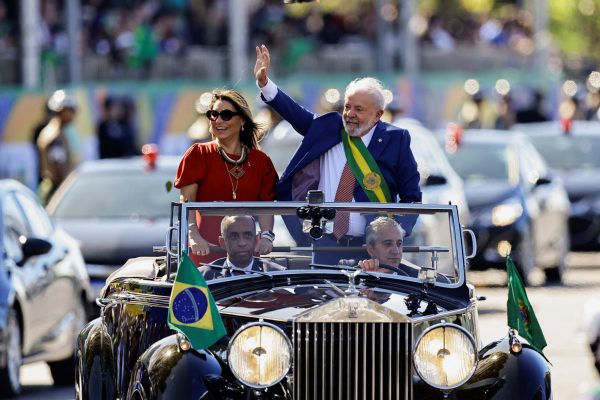
Corruption and censorship have been an ever-increasingly dangerous problem for Brazilians, as recently the Supreme Court of Brazil made the social media platform, X, banned due to X not censoring information that Brazil dislikes. According to the United Nations Council for Human Rights, “Former President Lula was investigated in 2016 for alleged involvement in two cases in the ‘Operation Car Wash’ (Operacão Lava Jato), an extensive criminal investigation in Brazil which uncovered corruption between the state-owned oil and petrol company, Petrobrás, several construction companies, and various Brazilian politicians to obtain secret campaign funds.”
Brazil’s economy is in “decent condition”, however, cracks are beginning to show as according to Brasil de Fato, “Brazil’s real [the currency] has also fallen. It is even among the currencies that have depreciated the most” and according to Bloomberg News, “the Brazilian real slumped to a fresh new low for the year after the central bank failed to signal it may hike interest rates as its next meeting, a move that is already priced in by markets spooked by Brazil’s deteriorating inflation outlook.”
Trading Economics states that Brazilian inflation is rising for the third consecutive month, moreover, the “national debt in Brazil was forecast to continuously increase between 2024 and 2029 by in total of 815.9 billion U.S. dollars,” which is an increase of 42.25% (Statista), as the World Bank Documents and Reports have stated: “the indebtedness of the Brazilian states has reached crisis proportions.”
A young Brazilian man, who we will refer to as Augusto, gave an exclusive interview and provided insight into what life is like in Brazil, and the direct consequences of the Pink Wave on everyday people. Augusto states that the Foro de Sao Paulo and the governments of Latin American countries “are in the middle of trying to install Communist policies in their countries.”
Augusto boldly stated, “Lula’s government doesn’t care about the people of Brazil.” Augusto continued to state that the response to the flood of the state of Rio Grande do Sul in May of 2024 was a complete and utter disaster. “The city and state [were] flooded for months,” Augusto explained, “and the government didn’t really do much to help… People had to help themselves.” He began to tell the story of how he had a friend who lived in a city that was devastatingly impacted by the over-15-foot flood and how his “family home was completely destroyed” and there was no help offered to them. “People had to help one another, the government never actually helped anyone.”
Augusto explained that crime in Brazil is out of control, “If you walk out your neighborhood with your iPhone out it will get stolen. It’s also regular for people to even get their shoes stolen.” He also experienced insane culture shock when he found out people would leave their cars running in the morning to warm up or that some neighborhoods are able to keep their doors unlocked at night. “In Brazil, you could never do that.” Augusto also described how disgusting and dangerous Brazilian favelas are. “The police are no longer in control, and oftentimes, the police will work with the criminals. The favelas are somewhere you do not want to be.” Even the United Kingdom has issued travel advice regarding the favelas, stating “The security situation in many favelas is unpredictable. visiting a favela can be dangerous. avoid all favelas, including favela tours marketed to tourists and any accommodation, restaurants, or bars advertised as being within a favela.” NCBI states the favelas are so dangerous because of the “presence of drug trafficking, especially armed drug trafficking, increases the homicide rates around the favelas.
The forest fires of the Brazilian Amazon rainforest were “blamed an extreme amount on [former Brazilian President] Bolsonaro in 2022.” and the “media was calling him a genocidal maniac as he allowed for ‘the deaths of indigenous Amazonian tribes,” despite Bolsonaro’s efforts to stop the fires being “very successful.” However, when President Lula came into power, the fires “have gotten worse than [ever] before. The capital city of Amazonas [Manaus] was covered in smoke, people were getting very [sick], and the city did not see the Sun for weeks.” The situation is still horrendous as Augusto states, “Sao Paulo’s air was ranked as the worst quality in the entire world and I still cannot even open my window because of how bad the smoke is.”
Augusto also explained a story that is heard little in the United States, and that’s the immigration patterns of Venezuelans. Augusto states that the alleged over 7 million Venezuelans that have fled the country are likely significantly bigger and still growing. “Many Venezuelans flee to Brazil. They cross the Amazon forest, just barefoot, which is extremely dangerous. So many die, but the ones who don’t usually arrive at the capital of Roraima, Boa Vista, weighing 15 kilograms [30 pounds] less than when they started! The government allows them to stay but gives no support.” Meanwhile, Brazil still fully supports Venezuela as President Lula and Maduro are very close with one another.
Augusto ended the interview with this conclusion, “Brazil has not been a serious country since Lula got reelected. Nothing will make Brazil better with this [status quo], we even have communists in our Supreme Court, Alexandre de Morales.” He stated that at this point the best course of action would just be to “flee this country.”
The resurgence of the Pink Wave has proven to be a very consequential event in Latin American history, as it limits the freedoms and opportunities of the everyday citizens of the respective countries we have mentioned. Furthermore, our ever-increasingly interconnected world has experienced significant effects from the rise of the Pink Wave, including the illegal immigration crisis that the United States has experienced.

